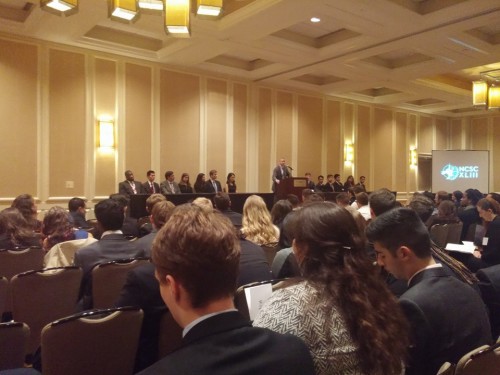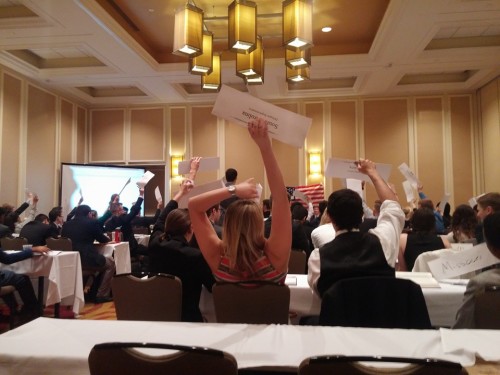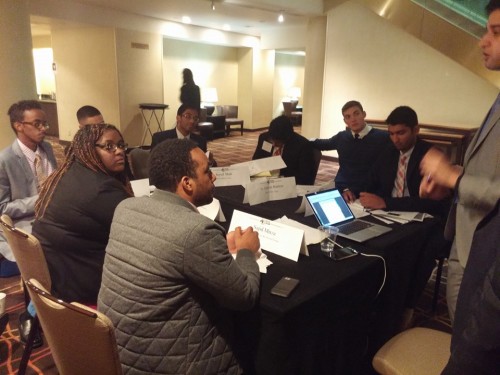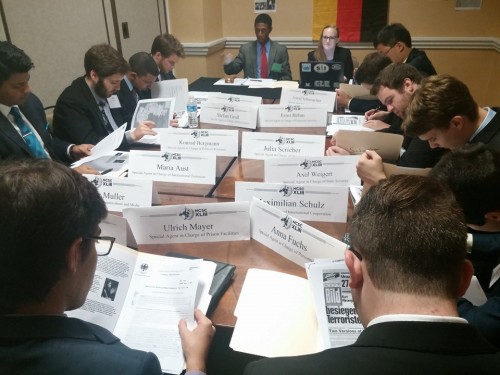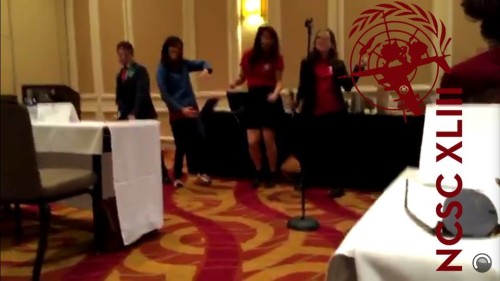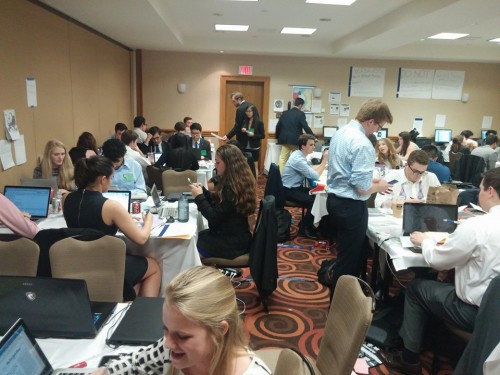Opening Ceremonies with a Keynote by Assistant Director James Trainor
The conference kicked off with an opening address from the Assistant Director of the Cyber Division of the Federal Bureau of Investigation, James Trainor Jr. Mr. Trainor addressed the new “fifth domain” of warfare: cyberspace. He highlighted the challenges of cyber enforcement against a broad range of actors- states, terrorist organizations, and even multinational corporations. Lastly, he encouraged the audience to consider going into cyber-security as a career- a field with nearly full employment for qualified applicants.
18 Dynamic Crisis-Driven Committees
NCSC is known for its focus on modern, realistic crisis committees. As Secretary-General Jack Ludtke said, NCSC avoids fantasy committees, and keeps committees modern with an internal norm of not having any committees pre-WWII. The only divergence from strict realism is to ask hypothetical questions about global issues- for example this year NCSC featured a 2020 Iran/Saudi JCC, assuming the United States pulled out of the region. A few highlights from some of the 18 crisis-driven committees at this year’s conference:
- In the Republican National Convention 1976, delegates had to decide whether or not they would put forward the un-elected incumbent Republican President, Gerald Ford, as their nominee for the election. Former California Governor Ronald Reagan and a host of other candidates muddied the water, recreating the most divisive and unpredictable convention of the past 50 years. Also, each session started with a rousing rendition of the Pledge of Allegiance!
-
In the Joint Cabinet Crisis for the second Indo-Pakistani war, delegates in the Indian and Pakistani cabinets fought over disputed territory, right of return, and rights for religious minorities in each country. However, as the conference progressed, a growing resistance became a full-blown third committee, with factions from the Indian and Pakistani cabinets convening in the hallway for their Saturday sessions seeking to establish an independent Jammu and Kashmir. This forced the Indian and Pakistani cabinets to work together briefly to try to find a solution to their shared crises.
- In the Arctic Council, delegates discussed territorial issues and other crises throughout the Arctic, with the 8 official (voting) members of the council as well as several observers participating in the discussion. As an indigenous Canadian movement sought to achieve full voting status in the committee, they met stiff resistance from the Canadian government. To overcome this barrier, the delegates tricked the Canadian delegate out of the room, entered voting procedure, and barred Canada from voting in a “quorum check” to grant voting rights to the indigenous group.
-
In the Ad Hoc Committee of the Secretary General, an application-only group of the top delegates across the country joined together to help the German government end the Baader-Meinhof Gang in the early 1970’s. Eventually, the committee was tasked with finding the last missing leader of the gang, as well as a planted bomb, by exploring throughout the Hyatt Bethesda across a variety of clues and committee invasion.
- Throughout the conference, staff used the conference’s custom Snapchat Tag to showcase all the behind-the-scenes work of the conference, and show delegates the fun crisis updates from the other committees across the venue.
Closing Ceremonies and Awards
Congratulations to all the delegates and delegations receiving awards at one of the most highly-concentrated competitive conferences of the year. Also, congratulations to GIRA and the conference staff for putting on a great conference, in addition to raising over $1200 for Action Against Hunger! The delegation award winners are as follows:
Best Large Delegation: Harvard University
Outstanding Large Delegation: University of Chicago
Best Small Delegation: Clark University
Outstanding Small Delegation: New York University
Special thanks to the Georgetown International Relations Association and the NCSC Secretariat for being great hosts to us at your conference, and putting on a great event for all attendees involved!

